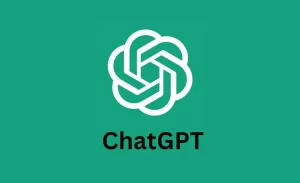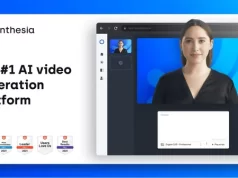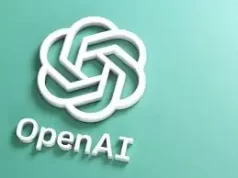Best Way to use ChatGPT for Research and Studies, presentations, and more. Find out the best way to prompt ChatGPT for the best results


ChatGPT is frequently perceived as a tool capable of potentially replacing human effort in tasks like composing academic or professional papers. However, it’s essential to recognize that ChatGPT can also serve as a valuable complement to human work, with research being a notable example (chatGPT for Research).


Join our Telegram Channel for Updates
Whether you’re engaged in academic research for a paper or conducting market research for your job, initiating the research phase and locating appropriate sources can present formidable challenges, consuming valuable time. ChatGPT and other AI chatbots can provide invaluable assistance by streamlining the process of source discovery, thereby enabling you to transition more swiftly to the substantive phases of reading and research.
Selecting the Appropriate Chatbot
Before we proceed, it’s essential to grasp the constraints associated with employing ChatGPT. As ChatGPT operates independently from the internet, it lacks the capability to furnish access to information or resources beyond the year 2021. Additionally, it cannot supply direct hyperlinks to the sources of information.
The ability to request a chatbot to provide links related to your topic of interest holds considerable value. If this is a feature you require, I suggest opting for a chatbot that maintains an internet connection, such as Bing Chat, Claude, ChatGPT Plus, or Perplexity.
ChatGPT for Research: Idea Generation
When you receive research paper assignments, you’re typically given a broad topic area. However, the onus is to pinpoint the subject you’d like to explore in your paper or research. ChatGPT can be a valuable asset in the brainstorming phase by proposing ideas or refining your own. For this illustrative research paper, I’ve chosen the overarching theme of “Monumental technological inventions that instigated transformative shifts in history.” If I didn’t have a specific topic in mind, I would communicate the general theme of the assignment to ChatGPT, providing as much detail as possible, and request some topic suggestions.
Here’s an example prompt: “I’m tasked with composing a ten-page research paper on ‘Monumental technological inventions that caused pivotal changes in history.’ The assignment requires me to cite five distinct primary sources. Can you assist me in devising a specific topic?”
As evident from the screenshot (below), ChatGPT generated ten viable topics, including “The Printing Press and the Dissemination of Knowledge,” “The Internet and the Era of Digital Transformation,” “The Telegraph and the Revolution in Communication,” and more.
Subsequently, you can engage ChatGPT in further inquiries, seeking additional details or potentially refining these suggested topics according to your preferences. This iterative process can continue until you arrive at a topic that aligns with your research objectives.
ChatGPT for Research: Craft an Outline
Once you’ve settled on a topic, you can request ChatGPT to construct a comprehensive outline that encompasses as much detail as possible for your assignment. In this instance, I utilized the first topic suggested by ChatGPT in the preceding step as an example.
Here’s the prompt: “Could you provide me with an outline for a ten-page research paper that necessitates the utilization of five primary sources, focusing on the topic ‘The Printing Press and the Dissemination of Knowledge’?”
ChatGPT proceeded to generate a 13-point outline, meticulously delineating the areas to be covered in my paper, as depicted in the accompanying image. This outline can then serve as a structural guide for your paper, aiding you in sourcing information using the steps outlined below.
ChatGPT for Research: Tell ChatGPT your chosen topic and request sources related to your project
Here’s an example prompt: “Could you provide me with sources for a ten-page research paper on the subject ‘The Printing Press and the Dissemination of Knowledge’?”
ChatGPT will generate a list comprising five primary and five secondary sources, which you can incorporate into your paper. It’s important to note that because ChatGPT cannot supply internet links, you will need to independently locate the specific resources, whether by conducting online searches or visiting your school’s library. In a similar scenario, when I presented the same question to Bing Chat, it furnished sources complete with clickable links for more expeditious access to the required materials. Consequently, for this stage, I would recommend employing Bing Chat.
ChatGPT for Research: Specify a Detailed Inquiry and Request Sources
In addition to addressing the entire topic, you can also leverage a chatbot to locate sources for specific facets of your paper. For instance, I solicited ChatGPT for sources related to a particular point within the paper outline it had previously generated.
Here’s the prompt: “Could you provide me with sources pertaining to the social and intellectual climate during the inception of the printing press?”
Just like in the previous example, ChatGPT offered a compilation of five primary and five secondary resources related to the specified aspect.
Employing this functionality for discrete portions of your essay is an advantageous approach as it affords you a wider array of source options and delivers tailored insights that can be harnessed to meticulously craft your composition.
ChatGPT for Research: Request Instances of a Particular Event
I frequently utilize this prompt in my workflow because there are instances when I vaguely recall a specific occurrence but struggle to precisely identify it or recall when it transpired.
This tool is equally useful when you need to locate a concrete example to bolster your topic. In both scenarios, you can enlist ChatGPT’s assistance in pinpointing a particular event or time frame, subsequently incorporating these details into your article.
For our essay scenario, if I desired to incorporate a counterargument and illustrate an occasion when the implementation of technology had adverse consequences on society but couldn’t readily think of an instance, I could enlist ChatGPT’s help in identifying one.
Here’s an example prompt: “Could you provide an instance from history when the integration of technology resulted in unfavorable consequences for society?”
In mere seconds, ChatGPT generated ten illustrative examples of incidents that I could seamlessly integrate into my research as counterarguments.
ChatGPT for Research: Generating Citations
Compiling a list of references and citations, while essential for scholarly rigor, can often be a cumbersome task. Fortunately, now you can streamline this process by enlisting ChatGPT to generate citations effortlessly. You can achieve this by merely providing the link or the title of the work and instructing ChatGPT to craft a citation in accordance with your paper’s preferred citation style.
Even if your source is not a website but rather a book or textbook, ChatGPT is still capable of generating a citation. The sole distinction lies in the possibility of needing to input certain details manually.












